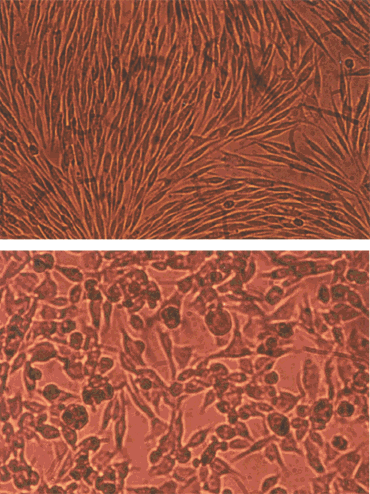Our laboratory has identified a set of molecules expressed on the cell surface of normal melanocytes whose expression extinguished upon malignant transformation to melanoma. We have focused on two cell-surface ectopeptidases in the dipeptidyl peptidase IV (DPPIV) family, DPPIV and fibroblast activation protein alpha (FAP-alpha). We have shown that re-expression of DPPIV or FAP-alpha by melanoma cells reverses the malignant phenotype, abrogates tumorigenicity, removes a block on differentiation, and promotes senescence. The tumor suppressor FAP-alpha is particularly interesting because it is expressed in the developing embryo during tissue remodeling but silenced in adult somatic cells except during wound healing and other conditions of remodeling. Using mice deficient in FAP-alpha, we are presently working to understand its function in cell growth and differentiation and in wound healing, what pathways it regulates, and why it is turned off with malignant transformation.

Melanoma cells expressing dipeptidyl peptidase IV (top), and the same cell line without DPPIV (bottom).
